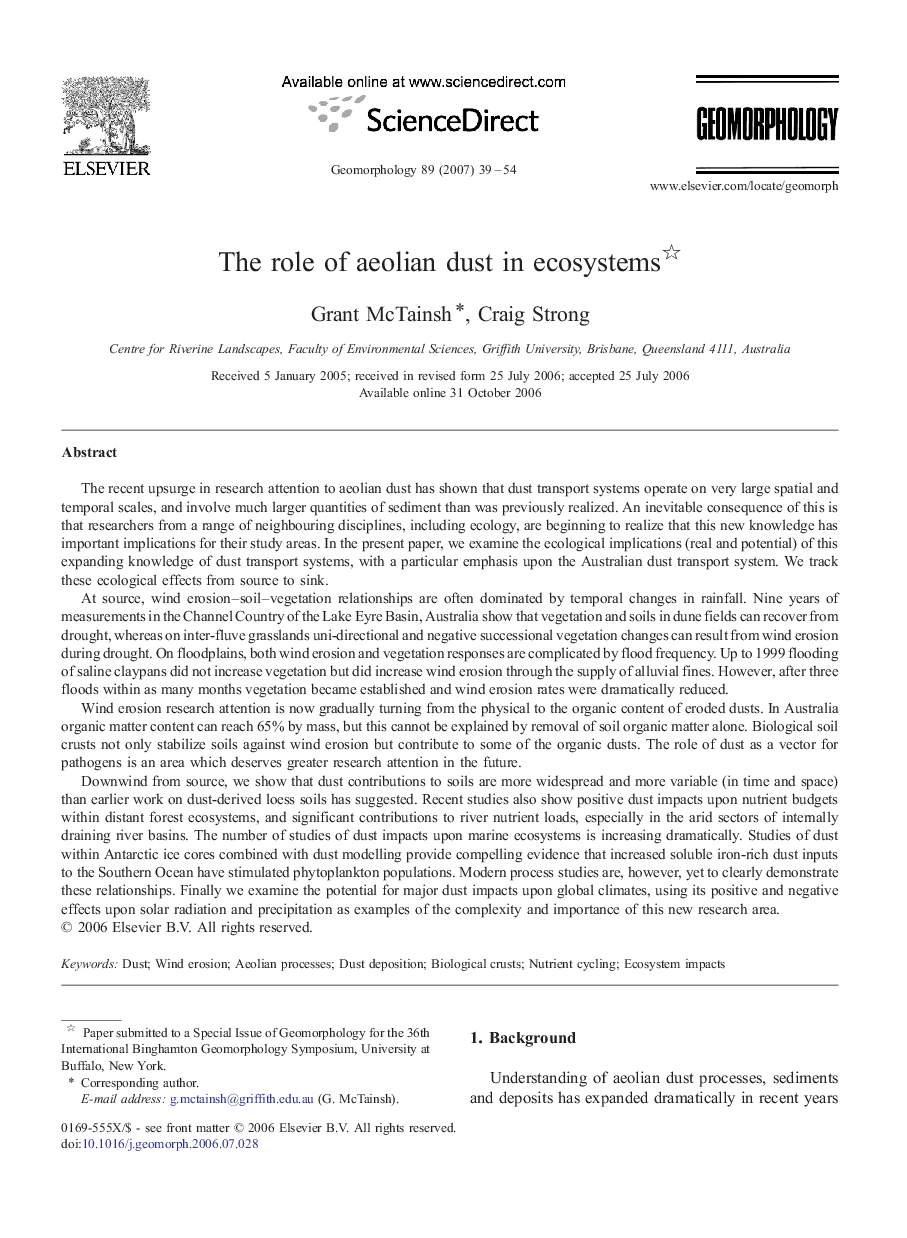| Article ID | Journal | Published Year | Pages | File Type |
|---|---|---|---|---|
| 4687236 | Geomorphology | 2007 | 16 Pages |
Abstract
Downwind from source, we show that dust contributions to soils are more widespread and more variable (in time and space) than earlier work on dust-derived loess soils has suggested. Recent studies also show positive dust impacts upon nutrient budgets within distant forest ecosystems, and significant contributions to river nutrient loads, especially in the arid sectors of internally draining river basins. The number of studies of dust impacts upon marine ecosystems is increasing dramatically. Studies of dust within Antarctic ice cores combined with dust modelling provide compelling evidence that increased soluble iron-rich dust inputs to the Southern Ocean have stimulated phytoplankton populations. Modern process studies are, however, yet to clearly demonstrate these relationships. Finally we examine the potential for major dust impacts upon global climates, using its positive and negative effects upon solar radiation and precipitation as examples of the complexity and importance of this new research area.
Keywords
Related Topics
Physical Sciences and Engineering
Earth and Planetary Sciences
Earth-Surface Processes
Authors
Grant McTainsh, Craig Strong,
